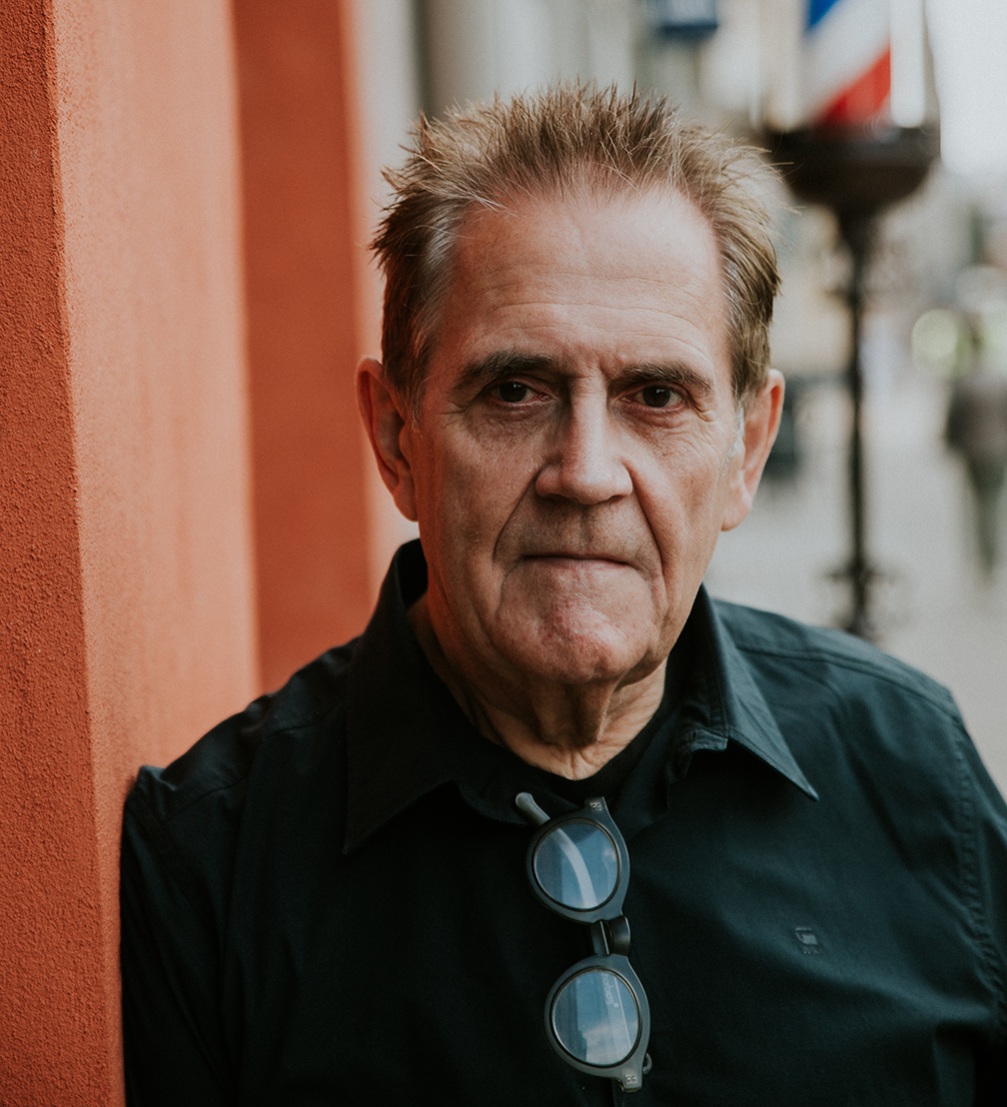
This year, by an invitation of Latvian Art Directors Club, the legendary British creative director Dave Trott gave a lecture in Riga. Trott has forty years of experience in advertising, the agencies he founded have been praised by the industry professionals, while Trott himself has received the President’s Award for lifetime achievement in advertising from D&AD. His blog is also a great resource for those in advertising, while Trott’s fourth book will be released early next year.
What brought you from studying fine art in New York to advertising in England?
Before studies in America, I had never seen good advertising, because we didn’t have it in England. When I studied at Pratt Institute in New York, finally I saw it and understood that this kind of advertising is what I want to do. Paintings are just for galleries and not everyone understands them. While everybody loves great ads like those done in the 60s, 70s, 90s. I wanted to be an author for something that impressive. I wasn’t very good as an art director, so I became a copywriter. For one year after graduating I worked in New York, but because of Vietnam, I had to come back to London so that I wouldn’t get drafted.
I found out that I was good at teaching, so I decided to open an ad agency. I went out and took on young people and made them really good in the field. Most people when they open their own agency would hire heavy, expensive professionals, but for this money, I could get ten young copywriters and designers. I fired the bad ones and gave their salary to those who stayed. It worked as a motivation, and they got better and better. After a while, the most successful ones became better than those expensive professionals and were able to work anywhere or open their own agencies. And I could hire new beginners again.
What about those who work hard, but still are not that talented?
It’s not about talent, it’s about hard work, it goes for everybody. Not everybody is able to work hard, but we don’t know who can before giving them the opportunity. I don’t hire your talent. I want to see how hard you can work every evening and every weekend if you really want something. I can teach talent, but I cannot teach the willingness to work hard. Being surrounded by people who desperately want to become good — that’s the part I enjoy. I get energy and a lot of excitement out of that.
It’s better to be an underdog. It’s more fun to be the one who should have been beaten. Everyone is bigger, faster, stronger, but you have to work it out, how can you win.
What was the most important lesson that you brought home from New York?
When I left England, everyone at that time wanted to be posh — correct pronunciation, correct behaviour, good manners. It was an embarrassment to say that you are from the poor part of the city, East London, where I come from. When I came to New York, I saw that all the good advertising there was done by people like me, not by the rich or posh people. Creatives there laughed more, joked more and were more excited. Their origin, be it Italian, Jewish, Polish, gave them more character.
So the first and biggest thing I learned in New York was that your strength is in being different.
What makes me different in England is that I come from the working class. Usually, advertising is made for these «common» people, and since I know them, I can always appeal to them and be funnier to them. Be what you really are, and turn the tables on the rich people.
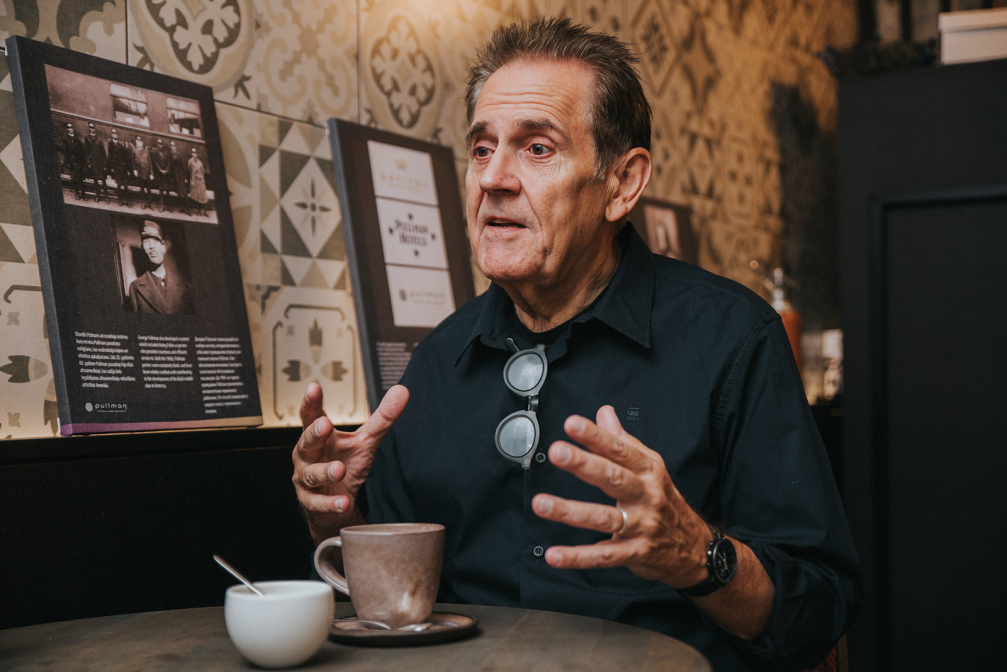
You mentioned that advertising requires hard work. Have you ever considered quitting?
Why? The worst day in advertising is better than a day in the factory. I know what real work is, and this definitely isn’t real work. It’s exciting to work with photography, music, record famous people, spend all day writing, eating, researching, have lunch when you want, come when you want and leave when you want. For a creative everything you do is related to your job — going to art galleries, reading books, just walking on the streets. This is paid fun!
When you discovered that you can teach — was that the reason to open your own agency or is it a natural step for every advertiser who wants to become more independent?
If you think you are better than your creative director and you could run a creative department that could do a better job, then look for a very good project manager who can bring in new business. Before opening my own agency, I was working with John Webster in Boase Massimi Pollitt. In my opinion, he was the best advertiser in England. But he appointed another guy to be a creative director there, I couldn’t work with him, so I left.
What would be your advice for those who are taking the first steps in advertising?
It always starts with logic. As a copywriter, you have to know that no matter what idea you have come up with, you have to think about impact, communication and persuasion. People think that they can impress by complicated things, but actually, you have to go beyond complicated — towards the simple. Our work is to simplify and exaggerate. Every great artist does that.
Can you say that your works are simple?
Yes, but it takes hard work to be able to do that. You have to learn everything complicated and then simplify, simplify, simplify. You take all the information from the research, from factory visits, but ask the client for one thing they can say about their product that makes them better or different from everybody else. It is a signature of a good agency — already during planning stages strategists simplify the message to one simple thought and then give it to the creative department to make it louder and more powerful. You can’t take all this complicated stuff and give it to the consumer. Then the message disappears.
Would you call your Pepsi ad simple too? You used so many adjectives that client wanted there.
The client wants to say it all, but the consumer will never listen to all of that. The target audience for this ad were youngsters. So what did they like at that time? They liked cheesy TV texts and even learned them by heart because they were funny. So I created this ad in a way that the client gets what he wants, but the youngsters remember it. Always look at your audience first. It’s not really important whether the client will be happy or not. The project manager should worry about that. Creatives don’t worry about that, we are thinking about the ordinary people, about the consumer. But the most important of all is your portfolio. You can’t put client’s satisfaction in it. You have to think about the ads and be loyal to your portfolio. That’s what will get you a job after job.
How to be sure that the idea will work?
I try to do something shocking, outrageous, controversial. Some people will like it, some people will hate it, but everybody will be talking about it. If you are too worried that people won’t like it, then you do something safe and nobody notices it. It could be really difficult for Latvians, and it’s very difficult for women. For Latvians, it is important to be liked, because you’re a young country. Also, women want people to like what they do. It is a reason why work in the creative department is more difficult for women — especially as copywriters. As a copywriter, women need to be more feisty, aggressive and they definitely shouldn’t care whether people like them or not.
What has been your greatest adventure in advertising during these years?
Some time ago I was interested in Oxfam — a charity organisation that feeds starving countries, saves children and focuses on reducing global poverty. They announced that there was a really big problem with poverty because of the third world debt. These countries owe an enormous amount of money, and their government had nothing to pay to the banks. Moreover, because the interest payments are so high, they would never be able to get rid of it. So they have to keep paying the interest while they cannot feed their own people and they are starving to death.
So I thought we can do something, even if there is no client, no budget, no strategist, no planners, no media, nobody. Since we had no money, we had to go around to all the film companies asking that the directors, editors, cameramen and others give their time and tools for free. After that, we got little chain and art cinemas to run this campaign for free. As we wanted to be really controversial, we understood that we can do things that can’t be done on normal media.
A thing that would never be shown on TV and would be quite shocking is a turd. We got Gilbert and George’s painting «Naked shit» with a big turd in the middle of it and blew it up to life size. After that we got the mayor of London to lean on it while telling that there is more goodness in this piece of shit than in what the average third world child gets to eat in a week, and it’s because our banks are making money out of debts of their country.
At last, everybody started to talk about the debt, and there was some action from the banks. The debt still exists, but it is a smaller problem than it was, and I’m proud of it. These ads were much more creative than sitting and waiting for someone to tell us what to do.
What is the thing that makes you angry in the world? If you are in the advertising, and if you are creative, you are in the position to do something about that.
You are also inspiring lots of people with your blog. What is the story behind that?
I never wanted to write a blog. When I was younger, I tried to write a book, but I got no patience. Later the agency I was working at asked me to write a blog for its new website so people would visit it every day. If I would have to write for a blog every day, the agency probably would have to turn the stuff down every day, so I offered to write a lot of articles, keep only the best and put them in a book, so I get the best of both worlds. For me, it is important to write in a simple way. English tend to embellish their sentences and want to impress others with long words. Americans, like my favourite copywriters William Bernbach, Bob Levenson and Ed McCabe, write much better, because they use shorter words. I believe my writing is more American.
What are your favourite latest campaigns?
None. Of course, there are loads of good ads, but not in the last five or ten years. They all are rubbish and wallpaper, because they look similar, while we are surprised by things that look different. Everything is about the latest technology now. You could go around in the shopping mall and see everywhere the same — a happy family on the outing, flying their kites, driving their car or putting children to bed. Is this an ad for a car, hot coffee, life insurance or what? The problem is that planners have taken over, but they aren’t people of advertising, they are sociologists. As I mentioned, planners should reduce the main task for creatives and get to the one point, but they don’t. They stop at the beginning and say that the brief is ready.
How to escape from this circle of everything being the same?
It’s like in music. The new comes with revolution, then everybody gets excited and starts to copy it. The last really original thing that happened, in my opinion, was punk in the West. It turned everything upside down. After that people got bored, and the rap and hip–hop came. Then people copied that, and everything sounded the same again. I think it will carry on like this until someone comes along and does something very different and creative again. All these new things are always a reaction to something that existed before. It happens almost everywhere — in music, art, politics, philosophy etc. At the moment there is no reaction, but when the next generation will get angry enough at the existing advertising, then something new will happen. I believe, it will have something to do with anti–technology mood.
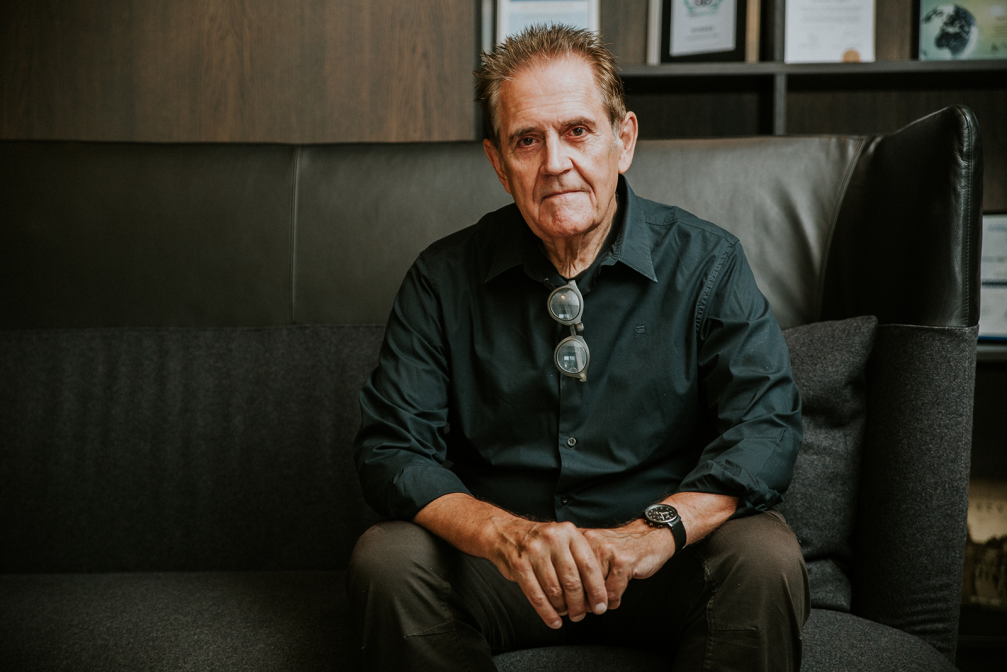




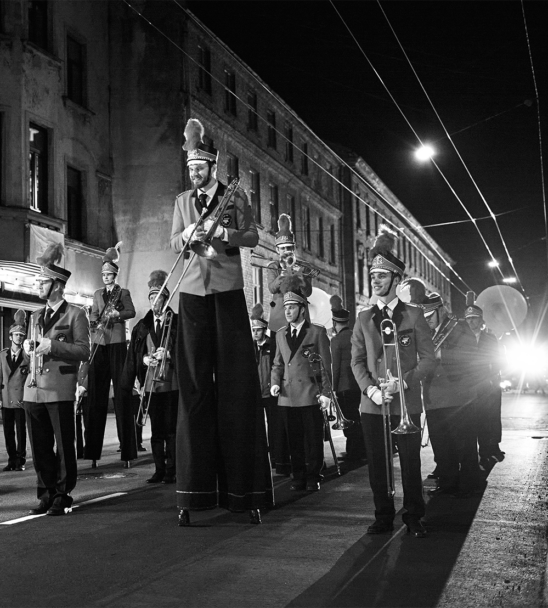

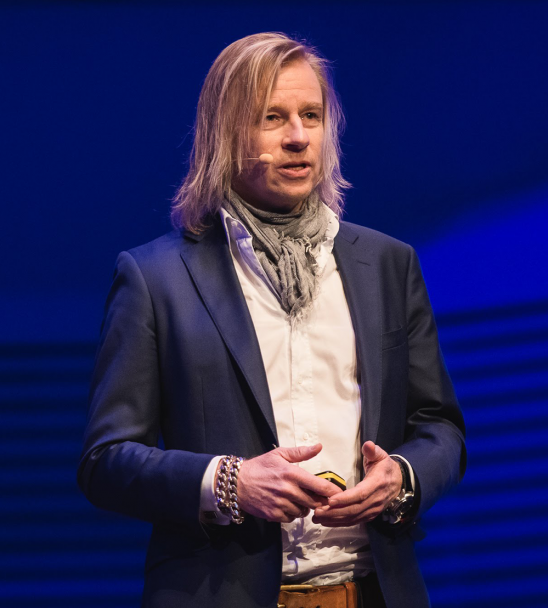
Viedokļi